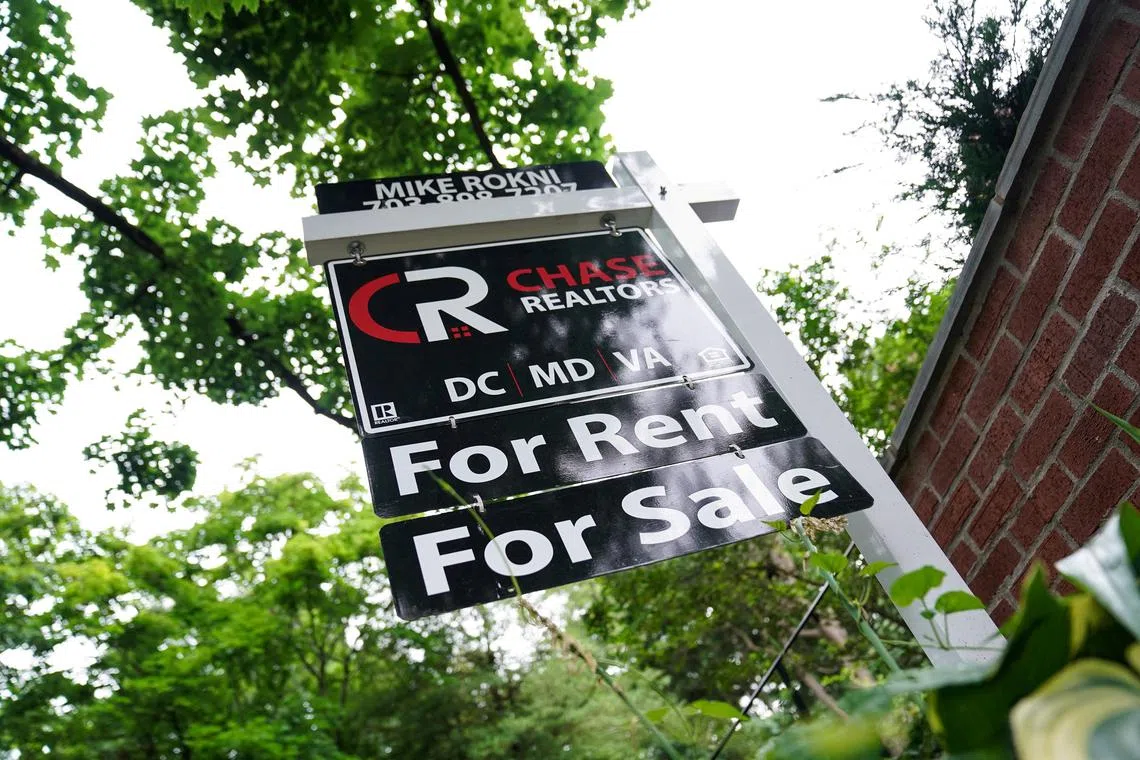Housing slump adds to woes for global economy
Sign up now: Get ST's newsletters delivered to your inbox

Sliding property prices threaten to undermine consumer confidence and weigh on household spending, which had been a rare bright spot for the global economy last year.
PHOTO: REUTERS
Boston - Shaky property markets across much of the world pose another risk to the global economy as higher interest rates erode household finances and threaten to exacerbate falling prices.
Reports this week have shown the US housing slump stretching into a fifth month, China’s home sales slide continuing price declines persisting in both Australia and New Zealand.
Sliding property prices threaten to undermine consumer confidence and weigh on household spending, which had been a rare bright spot for the global economy in 2022. Investment too could take a hit as developers scale back projects in response to falling prices, waning demand and higher borrowing costs.
In the United States, last year’s run-up in mortgage rates cast a chill on the housing market, leading to the worst annual drop in sales of previously owned homes in more than a decade. That has pressured prices, particularly in parts of the country such as San Francisco, where affordability was already stretched.
That strain is set to continue during the US Federal Reserve’s campaign to tackle inflation. Policymakers are widely expected to raise rates by a quarter percentage point at the conclusion of a two-day gathering on Wednesday, to a range of 4.5 per cent to 4.75 per cent.
China drag
In China, the world’s No. 2 economy, the property slowdown is showing few signs of abating, even as the authorities ramp up efforts to revive the industry. New home sales tumbled 32.5 per cent in January from a year earlier, preliminary data from China Real Estate Information showed on Tuesday.
Officials have taken steps to ease financing to cash-strapped developers in recent months, unwinding a deleveraging campaign that triggered a wave of defaults and dragged on economic growth in the nation.
The local authorities have also stepped up efforts to stimulate home buying, including by cutting mortgage rates
The prospect of ongoing weakness in China’s property market is a potential headwind to Nomura Holdings’ otherwise upgraded view of this year’s growth prospects, economists wrote in a Jan 31 note. They cited the official narrative that “housing is for living and not for speculating” and declining prices as brakes on speculative demand.
Australia, New Zealand fall
Prices continued to fall in Australia and New Zealand in January, with the slide likely to continue as neither property market has yet felt the full brunt of 2022’s spike in interest rates.
Many New Zealand households are on fixed-rate mortgages that have yet to roll over to a new, higher rate. As a consequence, economists are predicting house prices will fall further and be at least 20 per cent below their late-2021 peak by early 2024.
In capital city Wellington, prices have already fallen 18.1 per cent from a year earlier, CoreLogic data shows. In Auckland, the largest city, prices are down 8.2 per cent.
It is a similar story in Australia, where a spike in loan repayments for those whose mortgages switch to higher variable rates in 2023 is set to weigh on consumption, according to a report by Bloomberg Intelligence.
Singapore cools, Hong Kong hots up
Housing is even cooling in Singapore, which has been more resilient than many other markets. Home prices rose just 0.4 per cent in the fourth quarter of 2022, the slowest pace in more than two years,
Still, part of the decline has stemmed from a dearth of new property launches, and analysts expect sales to rebound once supply picks up. Wealthy buyers are also buoying the luxury market.
One bright sign is coming from Hong Kong, which is seeing glimpses of a housing recovery mainland China reopens.


